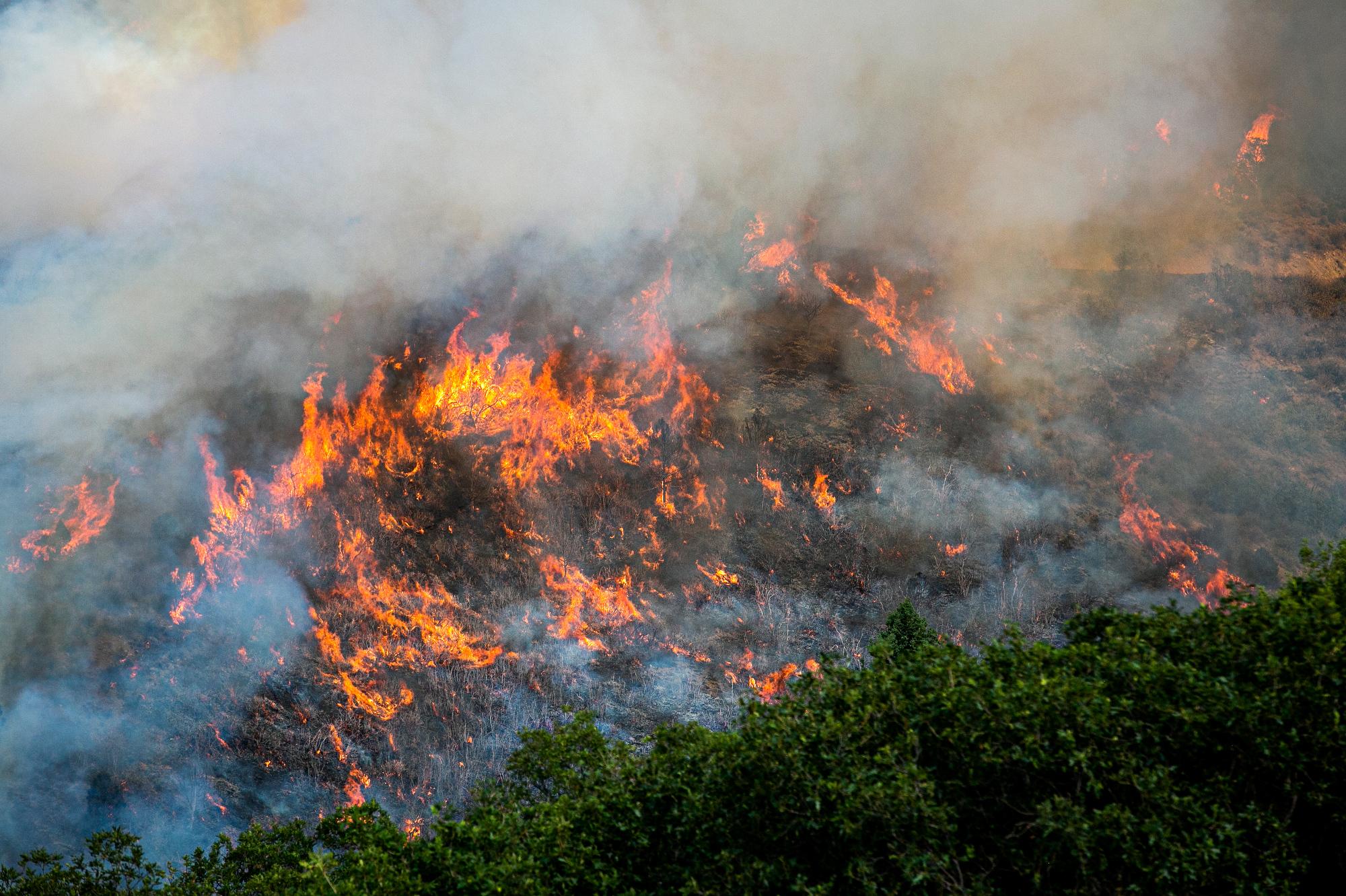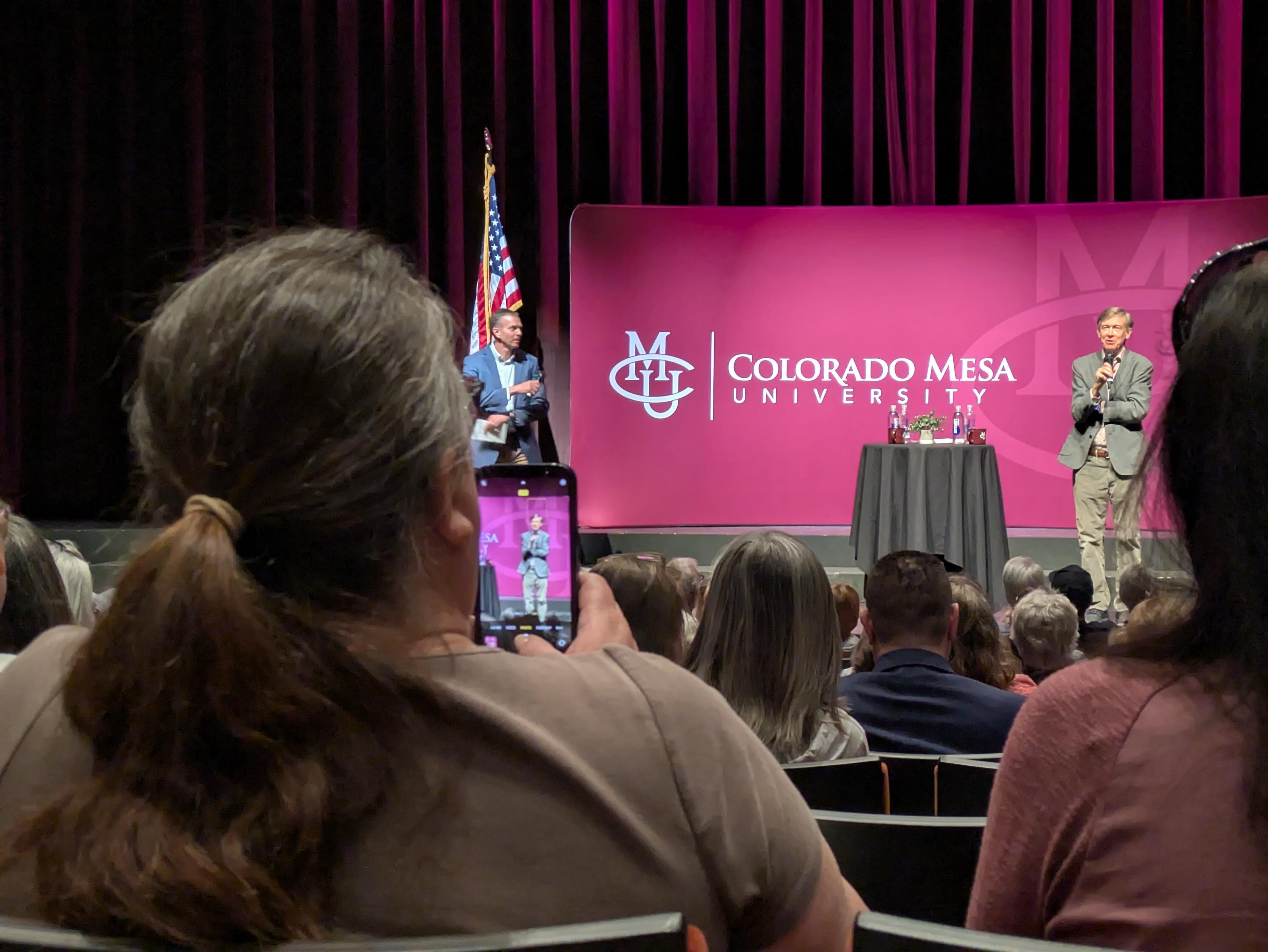
With wildfires burning across the West, Republican Rep. Lauren Boebert has introduced a forest management bill that she says could help prevent catastrophic wildfires.
Boebert described her bill, called the Active Forest Management, Wildfire Prevention and Community Protection Act, as the strongest forestry bill in decades.
It would fund the removal of dead trees killed by bark beetles and would make it harder for groups to go to court to stop forest thinning.
The bill also sets up Forest Reserve Revenue Areas — parcels identified for timber sale that would raise money for nearby communities as well as go into the Treasury. The minimum volume of lumber produced under the bill would be six billion board feet. A summary of the bills notes that its programs are either revenue neutral or would bring in money.
“Instead of pandering to radical enviros, my bill puts rural communities first,” she said in a statement.
Aside from the Western Bark Beetle Program, many of the provisions in Boebert’s bill can also be found in other bills. That’s not unusual, especially when it involves reviving legislation from a member who has left Congress.
Where Boebert’s bill borrows from past legislation
Sections in Boebert’s bill dealing with hazardous fuels reduction and sending logging revenue to local communities are drawn from legislation once carried by former Washington Rep. Doc Hasting. Former Colorado Rep. Scott Tipton, whose seat she now holds, also pulled language from that bill.
Boebert added to Hastings’ Forest Reserve idea by including a provision to ensure any additional funds counties receive would be in addition to PILT or the Secure Rural Schools program funds.
The bill also models language found in legislation offered by other current members of Congress. The forest litigation reform idea was proposed by GOP Rep. Bruce Westerman in his Resilient Federal Forests Act. He introduced that bill in the past two congresses and his office said they will offer it again this year.
The bill also contains an idea for a collaborative prescribed fire program proposed by Democratic Sen. Ron Wyden. Her language differs by including counties and states, and is subject to funding.
And closer to home, the idea for a Restoration and Resilience Partnership Program can be found in the Outdoor Restoration Partnership that Democratic Sen. Michael Bennet and Rep. Jason Crow offered earlier this year.
A staffer in Boebert’s office said Boebert made clear that she modeled parts of her legislation on bills that had passed the House or had been previously introduced. The staffer added Bennet encouraged the congresswoman to look at his bill during a recent call, noting she might find some provisions to consider.
A source familiar with Bennet's legislation said his office is still reviewing Boebert’s bill, but that the inclusion of some of the terminology demonstrates how much support there is for the Outdoor Restoration Partnership Act in the Western Slope.
Boebert noted the support for her bill, which included logging and forestry groups, as well as support from the Associated Governments of Northwest Colorado and county commissioners in Jackson, Moffat, and Rio Blanco counties. Fellow Colorado Reps. Ken Buck and Doug Lamborn are two of its almost 20 co-sponsors.
There are no Democratic co-sponsors at this time, which may make it difficult to pass the bill in the Democratic-controlled House.
Editor's Note: this story has been updated with more information about the bill.
- As Wildfires Get Worse, So Are Firefighter Shortages. Climate Change And Low Pay Aren’t Helping
- Here’s A First Draft Of The Maps That Will Shape Colorado’s Balance of Power For The Next Decade
- A Congressional District For The North Denver Metro? Here’s The First Draft Of Colorado’s New Eighth District









